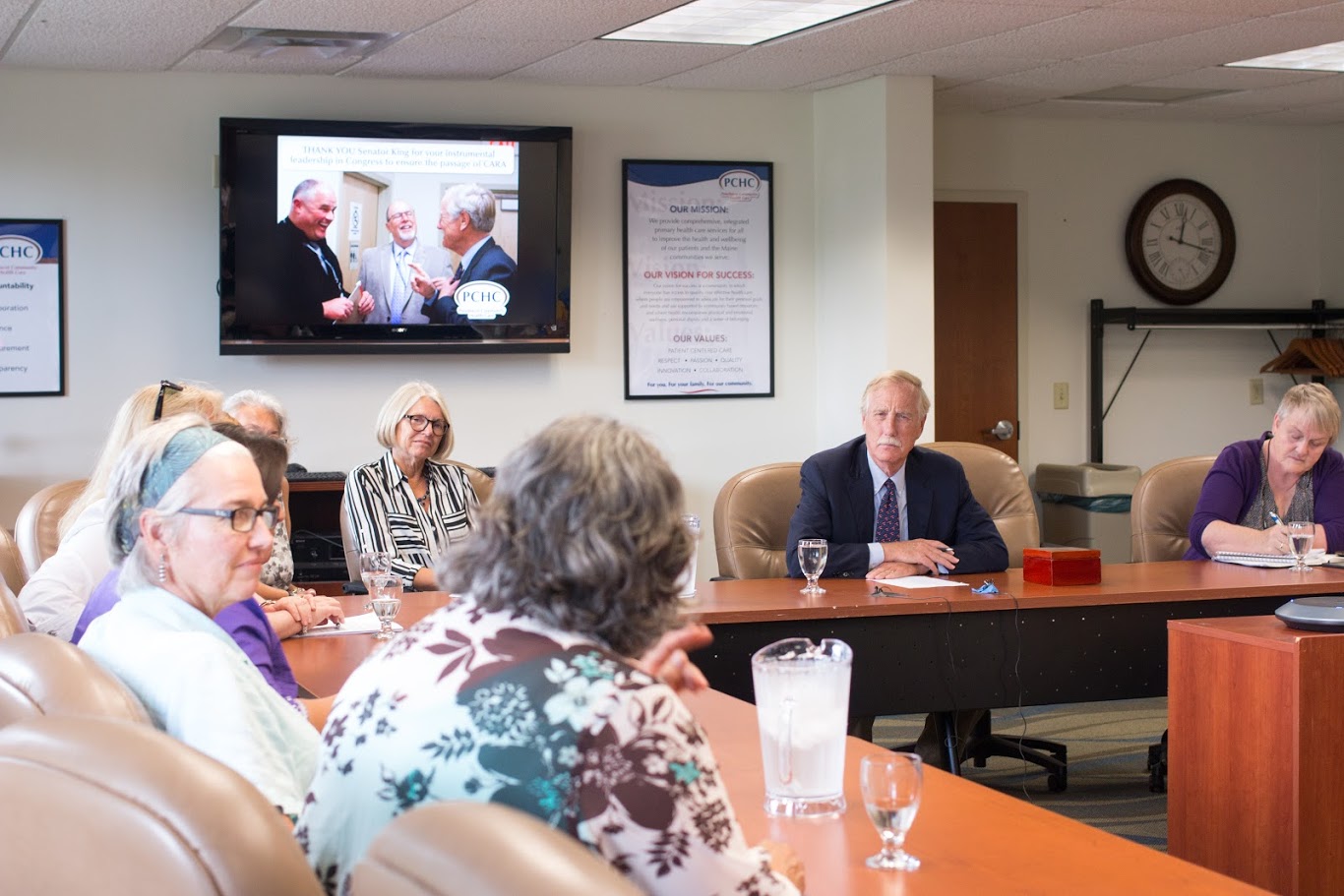July 26, 2016
BANGOR, ME – U.S. Senator Angus King (I-Maine) today convened a roundtable with nurse practitioners in Bangor that focused on the importance of working to expand medication-assisted treatment, also known as MAT, which can be a critical tool in helping people overcome opioid or heroin addiction. The discussion builds on reforms enacted by the Comprehensive Addiction and Recovery Act (CARA), which provides a community-based response to the addiction crisis facing America. The legislation specifically includes a provision supported by Senator King that increases access to MAT by allowing trained nurse practitioners and physician assistants to prescribe it.

“Medication-assisted treatment is a proven way to reduce drug use and overdose risk for people suffering from addiction. It can literally help a person turn their life around within a matter of weeks,” Senator King said. “But despite these encouraging results, Maine, like much of the nation, has been lagging when it comes to making this medication available and accessible to the people who desperately need it. The nurse practitioners I met with today are fighting this epidemic every day, and by allowing them to provide MAT, we’ve put another tool in their toolbox to treat opioid addiction and help Maine people turn their lives around.”
MAT is a treatment option for addiction that includes the use of medication, such as Suboxone, along with counseling and other support. Numerous studies have demonstrated MAT’s effectiveness; however it continues to remain vastly underutilized across Maine and the country at a time when treatment is desperately needed. According to the U.S. Substance Abuse and Mental Health Services Administration, an estimated 25,000 to 30,000 people in Maine wanted drug treatment but were unable to attain it.
CARA, which was signed into law by the President on July 22, ushers in new reforms to fight addiction by expanding access to MAT. More specifically, the bill includes a provision that allows nurse practitioners and physician assistants who are trained and who meet other criteria to obtain a federal license to prescribe buprenorphine therapy, which is also called Suboxone. Additionally, following a request from Senator King and other lawmakers, the U.S. Department of Health and Human Services is currently working on raising a prescriber cap that limits the ability of some physicians to prescribe MAT to some patients. Under current regulations, physicians that are certified to prescribe buprenorphine for MAT are allowed to prescribe up to 30 patients initially and then after one year can request authorization to prescribe up to a maximum of 100 patients. HHS is currently working to raise that cap to 275.
Today’s discussion was the fifth roundtable that Senator King has convened across the state as part of his effort to tackle the opioid and heroin epidemic, which he has made one of his top priorities in the Senate. He has previously held discussions in Paris, Portland, Brewer, and Bangor – each of which focused on a different aspect of the opioid and heroin crisis, and each of which have helped inform his work in Washington. Senator King has introduced and supported several pieces of legislation to help tackle addiction, and continues his push for emergency funding to fight the epidemic.
Photo 1: Senator King convenes an opioid roundtable in Bangor with nurse practitioners (photo courtesy of Penobscot Community Health Care).
Photo 2: Senator King convenes an opioid roundtable in Bangor with nurse practitioners (photo courtesy of Penobscot Community Health Care).
###